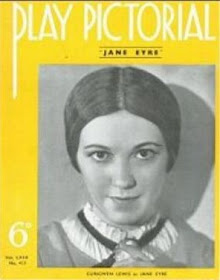It comes as something of a shock to realise that I'm old enough to have worked with a fellow who was born in Rhayader workhouse, or the Spike as they were called. Anyway Radnorshire had an interesting relationship with the
New Poor Law responsible for such places, some of which is explored
here. Indeed Thomas Frankland Lewis of Harpton, New Radnor was chairman of the gang of three Commisioners who oversaw the operation of the new act in England and Wales, he was succeeded by his son George Cornewall Lewis in 1839.
Edmund Head, who we recently met endorsing the view that the Welsh were a "miserable race of Celtic savages", was the assistant commissioner responsible for Central Wales and Herefordshire. One of his tasks being to set-up the six Poor Law Unions covering Radnorshire - Rhayader, Builth, Hay, Knighton, Kington and Presteigne. Mr Parker's article, linked to above, shows that Head deliberately sought to weaken Radnorshire influence over these Unions:
"The inhabitants of the central part of Radnorshire are exceedingly ill disposed towards the Board ... the only way of enforcing the Act is to unite as many (parishes) as possible with unions in England or on its borders."
By doing so Head hoped to "raise the character of the Radnorshire farmers." elected to serve as Guardians overseeing the Unions and would, presumably, learn from the superior character of their fellow Guardians from east of the border.
Of course Head was correct to mistrust the good folk of Radnorshire who were surely ill-disposed towards the
Malthusian world-view which inspired the new laws. Builth Union - which included 10 Radnorshire parishes - resisted building a workhouse for 38 years until forced to do so in 1875, while Rhayader Union resisted until 1878. The Radnorshire guardians seemingly happy to continue with the outdoor relief, often in cash, which our Malthusians saw as an encouragement to the poor to breed.






